
FOOD for Donkeys
Donkeys will thrive quite happily on meadow hay. They don’t need top grade lucerne hay – in fact it may contain too much protein for them if used as a sole diet. Unless being worked heavily or in foal, they don’t need their feed supplemented with grain or pellets. Too much rich feed may result in overweight or obese donkeys. Chaff (cut up hay) can be used; some people think it saves on wastage, whereas others feel that the long fibres in uncut hay are more beneficial to digestion.
Donkeys benefit by being given a salt-lick block intended for horses. Do NOT buy one intended for cattle or goats – these contain urea, a substance poisonous for donkeys or horses.
If possible, feed your donkey in small batches, 2 or 3 times a day, at regular times. This is better for his digestion than one giant feed – he will appreciate the routine and will be waiting patiently (??!!) for you to appear. Apples, carrots and green vegetables are welcome treats that will be eagerly appreciated, but cut them up into bite sized pieces to avoid the dangers of choking. Don’t feed potato peelings (or plants), avocado skins or rhubarb leaves – they are poisonous. Avoid giving regular treats by hand, the donkey will learn to expect them every time you appear and may become aggressive if you don’t have them. They can be chopped up and added to his feed.
Do NOT feed fresh green lawn clippings. If you wish to use them, let them dry out first then scatter them around so the donkey has to work to get them.
Treat each donkey as an individual. One donkey may need a different amount and/or type of feed than another. If you have more than one donkey it is best to feed each one separately so you can be sure that each animal is getting his share. If this is not feasible, spread their food out over a wide area, so one dominant donkey can’t drive the others away from the feed.
PASTURE for Donkeys
Donkeys can thrive on pasture, provided there is sufficient good quality grazing and it is well maintained. Supplementation with hay is usually required in the winter or dry spells when grass is not growing. You can judge when and how much to supplement by his condition and the conditions in his paddock. It is a good idea to break up his grazing area into at least 3 separate areas, if possible. This will assist recovery of the grass after grazing and will also assist with parasite control. Unless you have a very large grazing area, it is necessary to remove his manure – once again, for the grass to recover and for parasite control. Also, he will not graze near his manure and if it is not removed, this will limit the amount of grazing available for him.
WATER for Donkeys
A plentiful supply of good CLEAN water is essential for the continued health of your donkey. Check his water supply EVERY day to make sure that he has Plenty available, especially in summer. Clean out his water container regularly to prevent the growth of algae. Make sure that his water container is of adequate size and that it is not easily knocked over.
FOOTCARE for Donkeys
Most donkeys do not need to be shod. However, this does NOT mean that they don’t need regular attention. In fact, donkeys are more prone to seedy toe and other bacterial problems because their hooves are small and narrow and were designed by nature for hard rocky ground (not grassy paddocks where most are kept). Clean out your donkey’s hooves regularly, at least once a week, with a hoof pick and keep an eye out for problems. Their feet need to be trimmed regularly by a farrier, approximately every 2 months. It is possible to learn to trim your donkeys feet yourself or keep them in shape by regular filing. However, if the hoof is not kept in the correct shape it will cause strain to his knees and other joints, so unless you are very experienced it is best to call the farrier.
PARASITE CONTROL for Donkeys
One of the biggest potential problems affecting donkeys is that of internal parasites. Parasitic worms of various types cause more health problems, either directly or indirectly, than any other cause. Although it is impossible to eliminate 100% of these worms, a regular program of drenching with anthelmintic compounds, strictly adhered to, will eliminate most of them. You can purchase “worming pastes” that you can administer yourself from your Vet or produce store. Check with your Vet as to what is the most effective compound for the worms most likely to be found in your area and adhere to the schedule for that particular compound. Usually one dose every 6 – 8 weeks will be sufficient. It is a good idea to change the worming paste you use (make sure the ACTIVE INGREDIENT is different, not just the brand) after a period of approximately 12 months, so the parasites don’t built up tolerance. Your Vet can advise you in these matters.
Rotating your donkey through 2 or more grazing areas and/or collecting his manure is JUST AS IMPORTANT to parasite control as “worming” him regularly.
HEALTH CARE for Donkeys
All donkeys need some basic health care, above and beyond foot care and worming. Every donkey should be given a course of injections to protect against Tetanus. This is easily done by your Vet and should be one of the first things done when you obtain your donkey. You should brush your donkey’s coat regularly, and this will enable you to find any wounds or other problems. You need to keep an eye out for lice – signs could be bare patches of skin where he has rubbed to ease the itch. Only in severe infestations can you actually see the lice in his coat. Lice are treated by applying a suitable preparation (obtained from your Vet) usually by washing it into his coat, and repeating a week later.


TOOTH CARE for Donkeys
Your donkey should be checked annually by a professional Equine Dentist. If his teeth are not treated regularly he WILL develop problems. Donkeys chew their food in such a manner that the edges of their teeth become sharp, and if untreated, can cause discomfort when eating, even ulceration. Always have your donkey’s teeth checked before using a bit in your training program.
MENTAL HEALTH for Donkeys
All animals need some form of mental stimulation in order to remain in good health. This can be broken down into two areas – EXERCISE and COMPANIONSHIP. Regular training and exercise will keep him happy and interested in life. Even if you do not wish to train him for riding or other work, he will enjoy being visited or taken for walks, and his temperament will benefit from seeing different places and experiencing different environments.
A donkey is a HERD animal – he has evolved through the ages to roam the countryside in the company of other donkeys. A lone donkey was just a “walking dinner” for predators – never able to relax for fear of becoming a meal! Although no longer threatened by lions behind every bush in his paddock, his need for companionship is still there. The ideal solution for this problem is to keep two or more donkeys. However, if this is not possible, another animal (horse, goat, sheep, etc) can sometimes fill the need. However, donkeys are territorial by nature so they need to be carefully watched to be sure they accept the companion animal. If even this is not possible, then YOU must provide the companionship needed. Go into his paddock as often as possible, talk to him, groom his coat, and generally be a friend to him.
This brief article cannot hope to cover all the things necessary for the basic care of your donkey. It would take several books to do that,and even then you would still need time to develop the skills that only experience can bring. We recommend joining the Donkey Society in order to receive the on-going information provided in our newsletter and magazine, and information about our Activity Days, Shows and other activities. We also recommend the that you obtain more detailed information about your donkey’s care; we have books for sale written by experts. One of the best books available, written by Australian authors for donkeys in Australian conditions is Donkey Business III – this is packed with useful information and is available, along with several other great books, from the Society.
DONKEY SOCIETY OF NSW INC


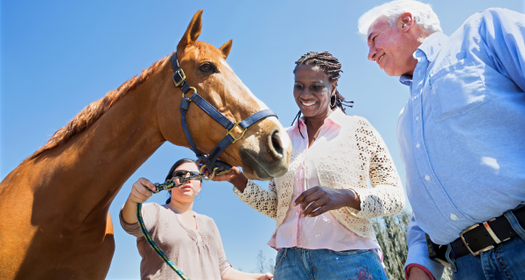
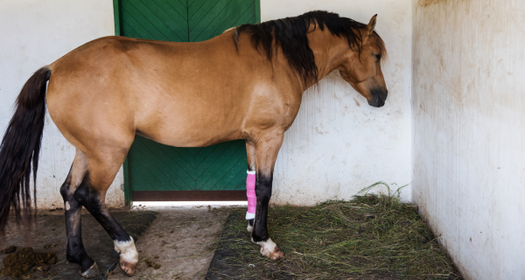
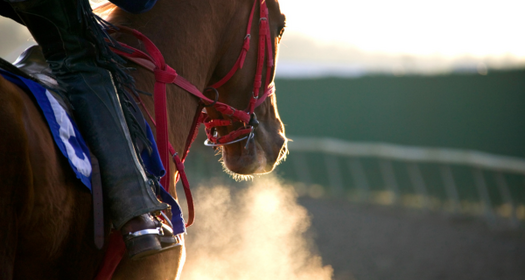

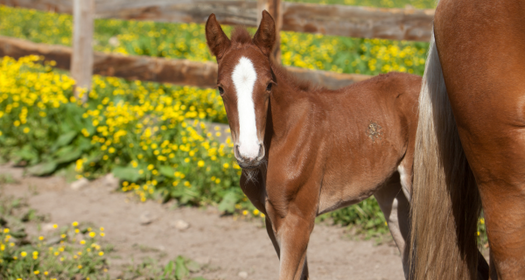



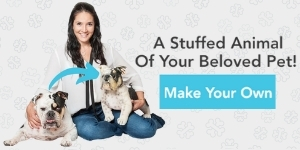
Leave Comment Below